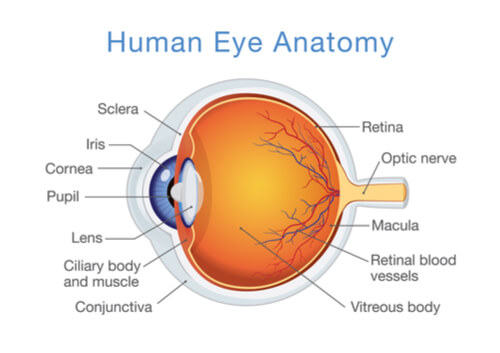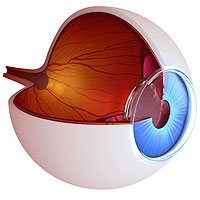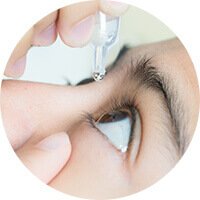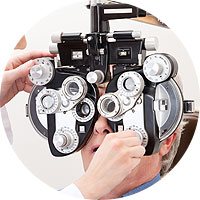
Understanding the complex systems inside of your eye is not easy. You don’t need to know the exact ins and outs of everything going on in there to stay healthy. However, here at Eyecare Specialists, we believe having a basic understanding of how the eye works can be very helpful in catching symptoms of serious disease. That’s why we are discussing the retina today!
The retina is one of the most essential systems in your eye. Without it, we would not be able to see at all. The retina is complicated, but nailing down the basics of what the retina is and what it does just might save your vision in the future. So, what is the retina?
What Is the Retina?
The retina is a thin tissue that lines the back interior of your eye. Think of where your pupil is (the black dot in the middle of your eye) and picture the retina in a mirrored position on the other side of your eye. In the middle of your retina, there is a small patch of tissue called the macula. The retina is attached to the optic nerve, a bundle of nerves that connects your eye to your brain.
What Does the Retina Do?
The retina is light-sensitive. Its position on the opposite side of your pupil is no mistake. When light comes in through the pupil (focused or not), the retina takes that light and turns it into signals that travel through the optic nerve to the brain.
The retina contains millions of tiny photoreceptor cells (called rods and cones) that translate light into electrical signals for the brain. Rods are more sensitive to light and dark, and the cones are more sensitive to color. Together, rods and cones work together to provide you with contrast and color vision.
The macula, located in the middle of the retina, is responsible for sharp, central vision.
Common Retinal Diseases
The retina is extremely important, and it is susceptible to many different diseases. Knowing the symptoms of retinal disease can let you know when to seek medical attention, making it easier to save vision.
Retinal Detachment: A retinal detachment occurs when the retina lifts off of the back wall of the eye. This stops the flow of blood and oxygen to the retina, resulting in cells dying off. Once retinal cells die off, vision loss is not treatable. A retinal detachment should be treated as medical surgery. The symptoms include a sudden increase in floaters and flashes and well as a darkening of peripheral vision.
Diabetic Retinopathy: Diabetic retinopathy happens when uncontrolled blood sugar levels damage the tiny blood vessels in the retina. These blood vessels begin to swell and leak fluid and blood, which can get into the eye cavity and obscure vision. If you are experiencing blind spots in your eye, you may be experiencing diabetic retinopathy.
Macular Degeneration: This disease, most often affecting those over the age of 70, occurs when the macula begins to break down. This causes blind spots in central vision. Macular degeneration itself cannot cause complete blindness but can cause loss of central vision entirely. See your eye doctor if you notice any blind spots in your central vision.
You should always report any changes in your vision to your ophthalmologist, especially if you experience any loss of vision or sudden changes. If you would like to know more about retinal diseases or if you suspect you may have one, contact the Eyecare Specialists in Scranton or Wilkes-Barre, PA to schedule your eye examination today!

















